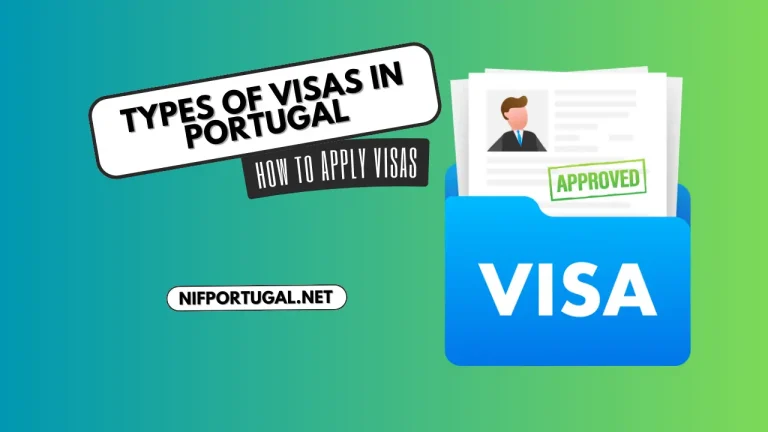Work Permit Portugal in 2025: D1 Visa Requirements, & Process

Portugal is a European gem, without a doubt, and the allure of exploring this gem is unmatchable. But what if you get a work permit visa to this enchanting and beautiful country of Europe? It’s hard to believe, but not that hard to get!
It’s crucial to comprehend the D1 work visa application process whether you’re a virtual employee, digital nomad visa holders, or location-independent professional who wants to live and work in Portugal. You are already lucky to have received your job offer; all you need for now is some assistance with the procedure.
So, we are here to help you out in this blog post. Today, with my personal experience and as an expert working in a well-versed organization from Portugal, we will cover the work permit Portugal (D1 Visa) in a detailed guide. This guide will cover all the essential information you need to apply, so let’s delve deep into the details now!
What Is a Work Permit Portugal D1 Visa?
To describe a D1 visa, in simple terms, professionals who have already accepted a job offer in Portugal are eligible to apply for the D1 resident visa. For individuals who wish to immigrate to Portugal, it is one of the most alluring routes. To elaborate more, specifically, professionals who have been offered a job in Portugal for a period longer than a year are eligible for the D1 Visa. However, this visa will not be awarded to people still looking to work in Portugal or any other Portuguese territory.
I often get asked, “What if I am already a citizen of Portugal?” The answer is that you can still apply for this visa and get permanent residency in Portugal. Moving on to the application process, the eligibility criteria for the D1 Visa application are as follows:
You can only apply for this visa if your job tenure is 183 days or more. It should not be less than this. As mentioned, you can use it if you have already been given a work contract by a company or an employer registered in Portugal. Also, more specifically, an employer registered in Portugal but not having a minimum monthly salary of 725 euros is not eligible to offer you the role.
But on the other hand, the payroll tax must be €250 per month, or 34.75%, if you are the company’s owner. Likewise, if we take another scenario that you are relocating with your family, you must furnish certain financial assurances. These assurances reassure The Portuguese government that you can raise a family.

Furthermore, I was also asked about the eligibility criteria for work visas for tourists in Portugal. I have seen multiple scenarios where people visit as tourists and luckily get themselves a job, so what’s the case for that? If you are currently on Portuguese land, you can apply for a D1 visa. To request a residence visa in Portugal as an American worker or professional, you need to:
How to Apply for a Work Permit in Portugal (D1 Visa)?
Under the D1 visa, there are two different approaches to applying for it, so it’s better to go with the first one here! If you are a US subordinate worker, you can apply for a visa at the nearest embassy or consulate in your home country. This approach is especially appropriate for non-EU foreign nationals. The alternative is to submit an Expression of Interest letter in Portugal and enter the Schengen area without requiring a special visa.
So, if you are not in Portugal, the best and most possible way to begin is to apply for a visa online through visa-issuing embassies. To proceed, here is what you need to do!
When you submit your application to a visa embassy, they may immediately approve it. Sometimes, however, they need more information on the company or your job role to clarify the situation. Once presented, your job visa will be approved by the embassy and can be issued within a few days, so you don’t need to worry about that.
Talking about the period, be it your subordinate work visa or the professional work visa, they generally take 30-90 working days. Moving on, here are all the documents you need to have for application for your D1 visa, including:
Other than that, there are some medical requirements that you must fulfil to get a work permit D1 visa. Having international travel insurance is essential if you want to apply for a Portugal D1 visa. This insurance is required for non-Portuguese applicants to cover any unexpected medical expenses that may arise while visiting Portugal.

Portugal Work Visa from Pakistan
If you have a job offer from a Portuguese company that is expected to last more than a year or have been promised one, you may be eligible for the D1 Visa. In addition, the candidate must prove they were interviewed for the post and possess the necessary training and experience for the D1 Visa. For Pakistani nationals wishing to go to Europe for employment, the D1 Visa is a suitable option as it allows for long-term residency.
D1 Visa holders are granted the freedom to live, work, and study in Portugal and unrestricted travel across the Schengen Area, which comprises 27 European nations, provided they possess a Portuguese residence permit. Because of the competitive salaries in Portugal, most Pakistani people are attracted to migrate to Portugal and work there. Also, just like any foreign tourist living in Portugal, whether from Pakistan, Dubai, or India, you can still apply for the D1 visa.
Now, moving on to the eligibility and document requirements, let’s see what you need!
A work agreement, pledge of employment, or expression of interest between you and your employer in Portugal.
Next comes the interviewing tips; for that, you might have to show up in person for a visa interview at the Portuguese Embassy or Consulate in Pakistan when you apply for a D1 visa. When you come for the interview, the interviewing officer will ask you questions about yourself, your background, and your trip to Portugal. After your D1 visa is granted, you can pick up your passport in person at the VAC or send it to you via postal mail for a small additional cost. Further on, you will need to register yourself and your other documents and numbers!
How Can We Help You?
Before travelling to Portugal, you must obtain a Portuguese tax identification number or NIF (Número de Identificação Fiscal). Regardless of whether you want to study, work for a living, or start your own company here. Every document application needs an NIF Portugal, which is a universal number. The NIF number is required more often than the passport number. So this is the case with NISS Portugal, a social security number. To be in Portugal legally, you need to have both of them.






